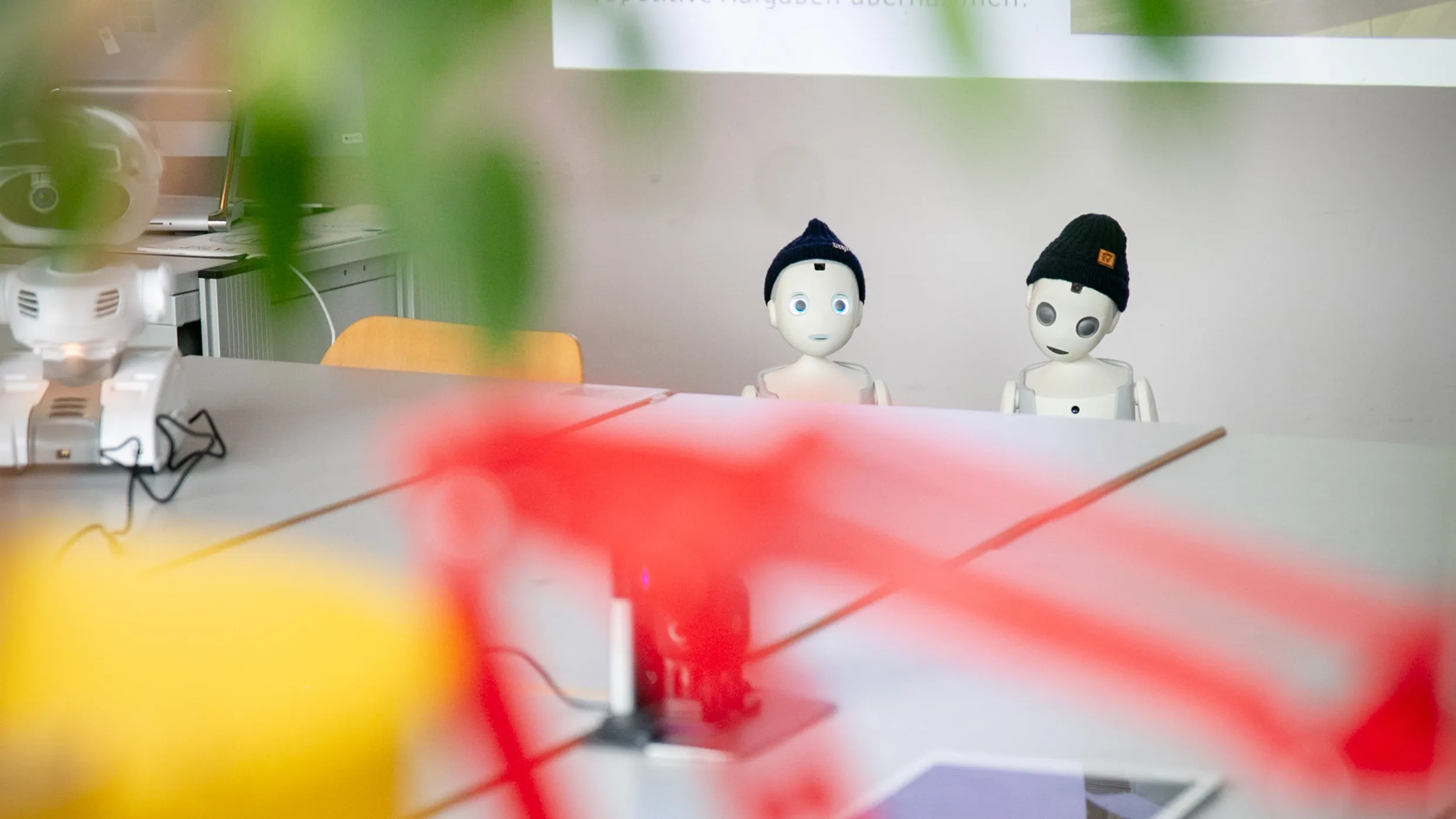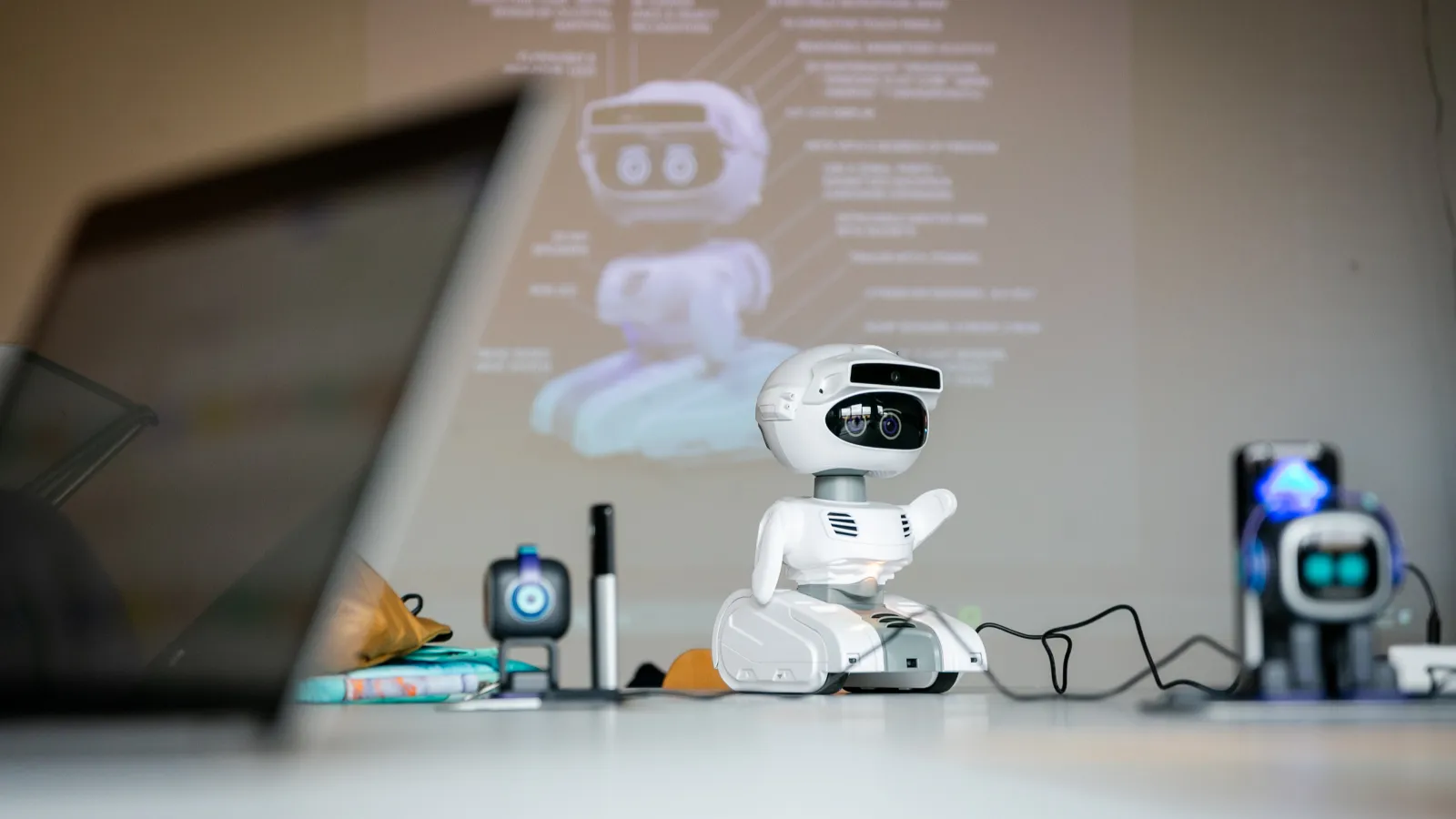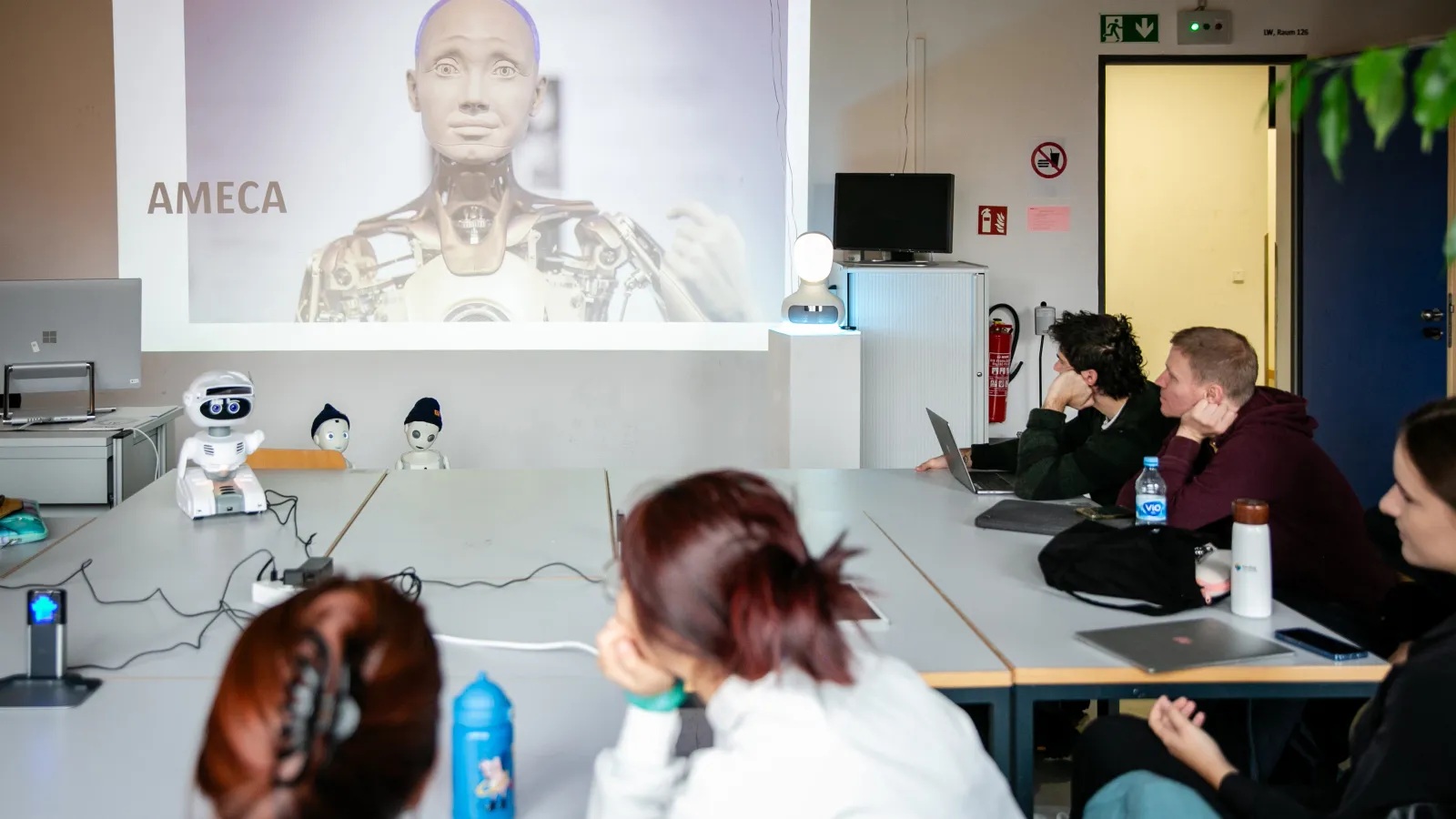Press release
Social Robotic Lab: University of Applied Sciences Potsdam researches the future of human-robot interaction

A pioneering research project in the field of human-robot interaction is being launched at the Department of Design at the University of Applied Sciences Potsdam under the direction of Prof. Dr Frank Heidmann, Research Professor for Design of Software Interfaces. Funded by the European Regional Development Fund (ERDF), an interdisciplinary test and experimental environment for social robots will be set up between 8th of February 2024 and 30th of December 2026. The aim is to develop and research new approaches for the interaction between humans and robots in social contexts.
The project centres on the investigation of technological, design, methodological and ethical issues surrounding AI-supported robots that support people in their everyday lives. The robot platforms, including the navel Social Robot, Furhat and Misty II, offer extensive development opportunities for innovative scenarios in the field of social human-robot interaction.
The Social Robotic Lab: a platform for interdisciplinary research
The project is being carried out under the title "Artificial Intelligence for Social Robot Interactions" in a specially established Social Robotic Lab. Scientists from various disciplines, including design, social and educational sciences and information sciences, will work together here. The lab will be designed as a real-life laboratory in which new methods of human-robot communication can be tested and experienced in a practical setting.
New technologies for social robotics
The breakthrough of AI-based chatbots and language models has revolutionised the interaction between humans and machines. With the help of powerful sensors and advanced recognition technologies, robots can increasingly respond to gestures, emotions and speech. At the same time, new actuator systems are opening up completely new possibilities for precise movements and fine motor tasks. These developments form the basis for research into how robots can be used in social contexts, for example in care, education or entertainment.
The design of social interactions is particularly challenging, as they are characterised by complex psychological and sociological processes. Together with partners from research and practice, the University of Applied Sciences Potsdam is pursuing the goal of finding answers to how robots are able to cooperate with humans in a socially and ethically appropriate manner. The focus is on questions of fairness, non-discrimination and the ethical justifiability of these interactions.
Social robots as future companions?
Ultimately, the project also aims to clarify what role social robots can play in areas such as education, care or as everyday companions and what ethical questions arise in this context. Can robots become real partners in the long term, and under what conditions will this relationship be beneficial for both sides? The project understands social robots as socio-technical systems whose successful development is only possible by taking a holistic view of the interaction between humans and machines.




